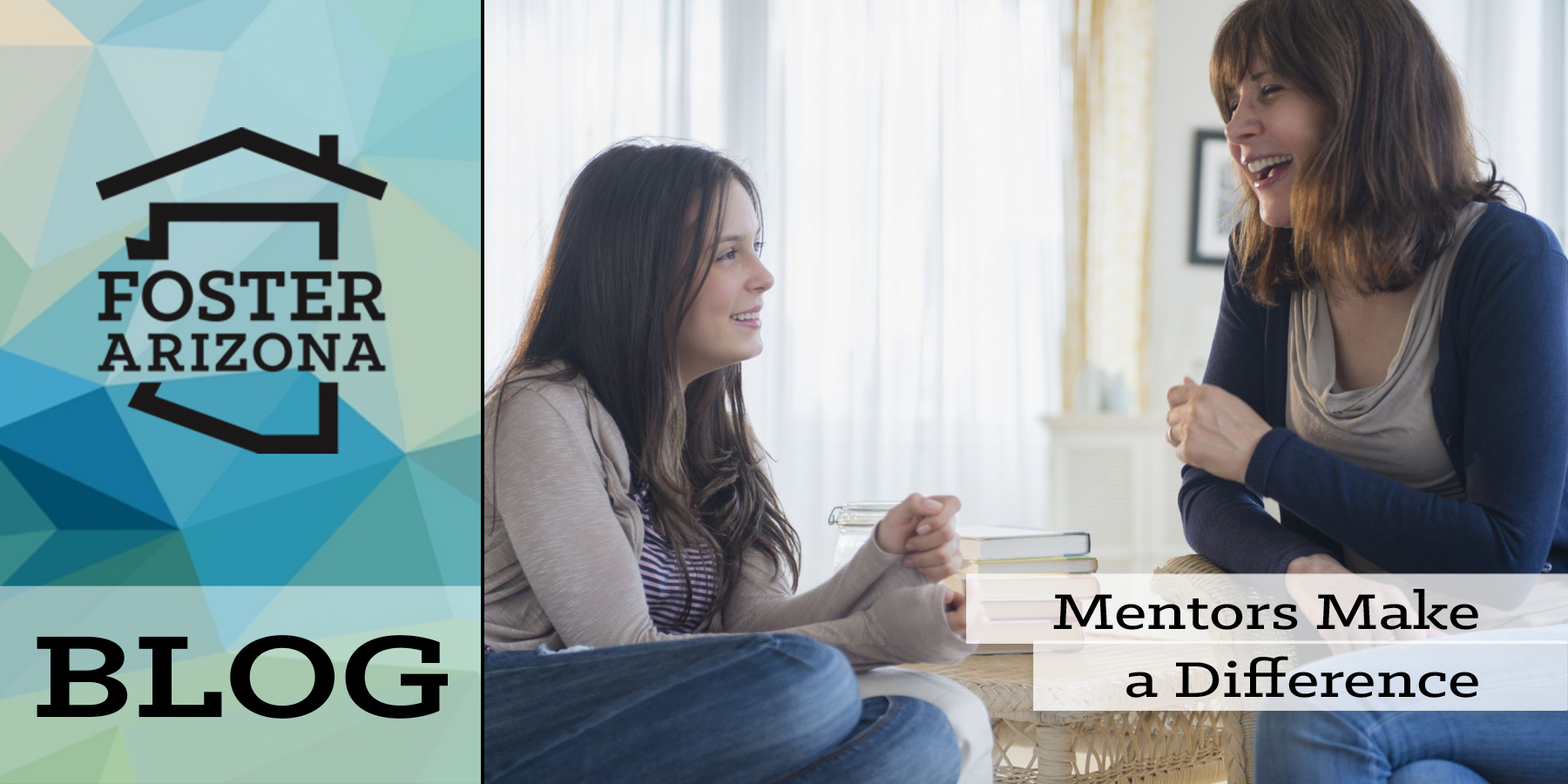I became a mentor because I wanted to be the adult in someone else’s life that I wish I had as a teen. I struggled with learning how to ‘adult’, now as a volunteer with Foster Arizona and as a foster mom, I see how former foster youth are at a huge disadvantage when it comes to navigating the world as an adult.
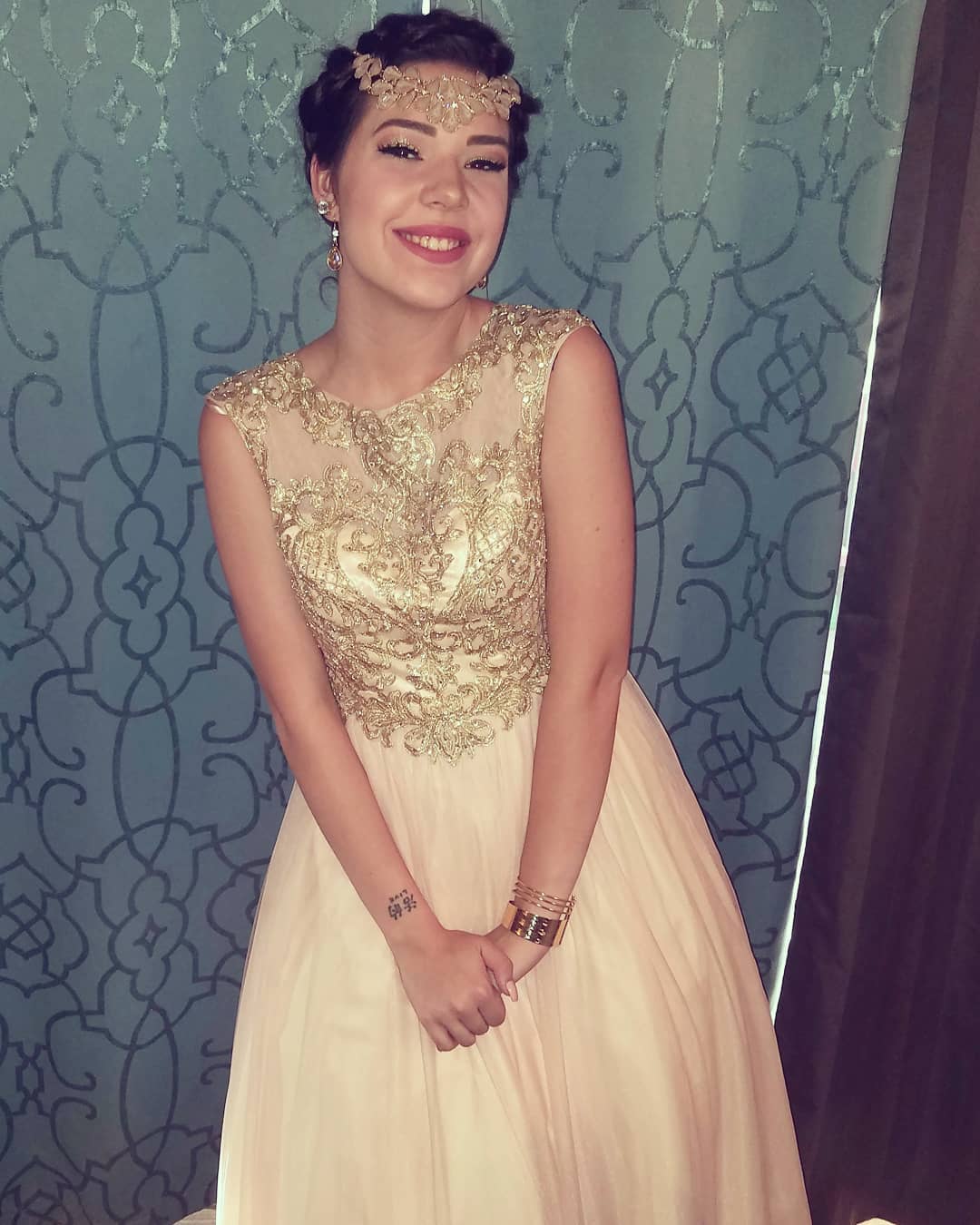 When I met Jill, she was a 19 year old 6 weeks away from graduation. Due to complicated circumstances in her adoptive home, she needed a temporary residence before being moved into the Foster Arizona Housing Project (FAHP) apartment. I had a spare bedroom and no current foster placements, so my husband and I opened our home to her and mentored her while she finished her senior year. Jill looked like a heartbroken young girl when I met her, you could see the stress in her entire body of all the things that had gone wrong in her life. I remember giving her a big hug and telling her she was okay now and I’m sure she didn’t feel okay yet. The relief of being in a home that welcomed her, faults and all, was such a huge relief that she sobbed.
When I met Jill, she was a 19 year old 6 weeks away from graduation. Due to complicated circumstances in her adoptive home, she needed a temporary residence before being moved into the Foster Arizona Housing Project (FAHP) apartment. I had a spare bedroom and no current foster placements, so my husband and I opened our home to her and mentored her while she finished her senior year. Jill looked like a heartbroken young girl when I met her, you could see the stress in her entire body of all the things that had gone wrong in her life. I remember giving her a big hug and telling her she was okay now and I’m sure she didn’t feel okay yet. The relief of being in a home that welcomed her, faults and all, was such a huge relief that she sobbed.
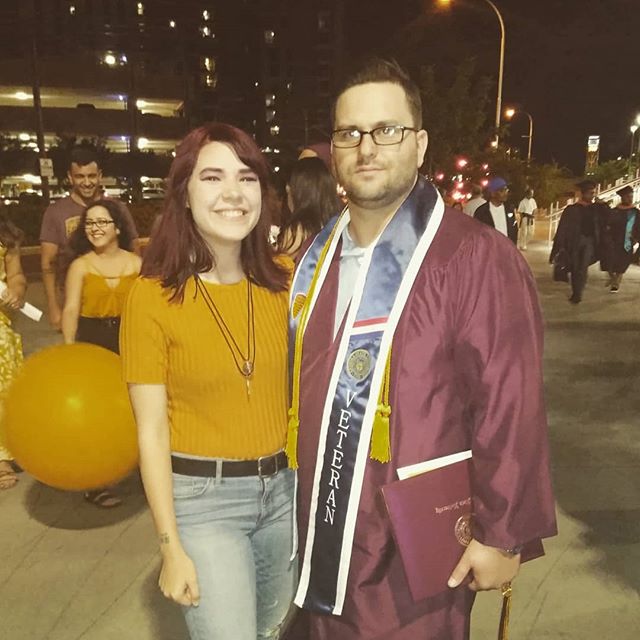 We discovered how much we had in common with her, my husband in particular shared a love of anime, and her kind and open heart was brought out by the connection with our pets. Her school and job were not a far drive but it gave us ample opportunity to connect with her and talk through all the complicated things she was dealing with in a judgement free way while helping her learn discernment. As rough as those weeks were for her that lead up to graduation, her growth was incredible. The young woman that
We discovered how much we had in common with her, my husband in particular shared a love of anime, and her kind and open heart was brought out by the connection with our pets. Her school and job were not a far drive but it gave us ample opportunity to connect with her and talk through all the complicated things she was dealing with in a judgement free way while helping her learn discernment. As rough as those weeks were for her that lead up to graduation, her growth was incredible. The young woman that 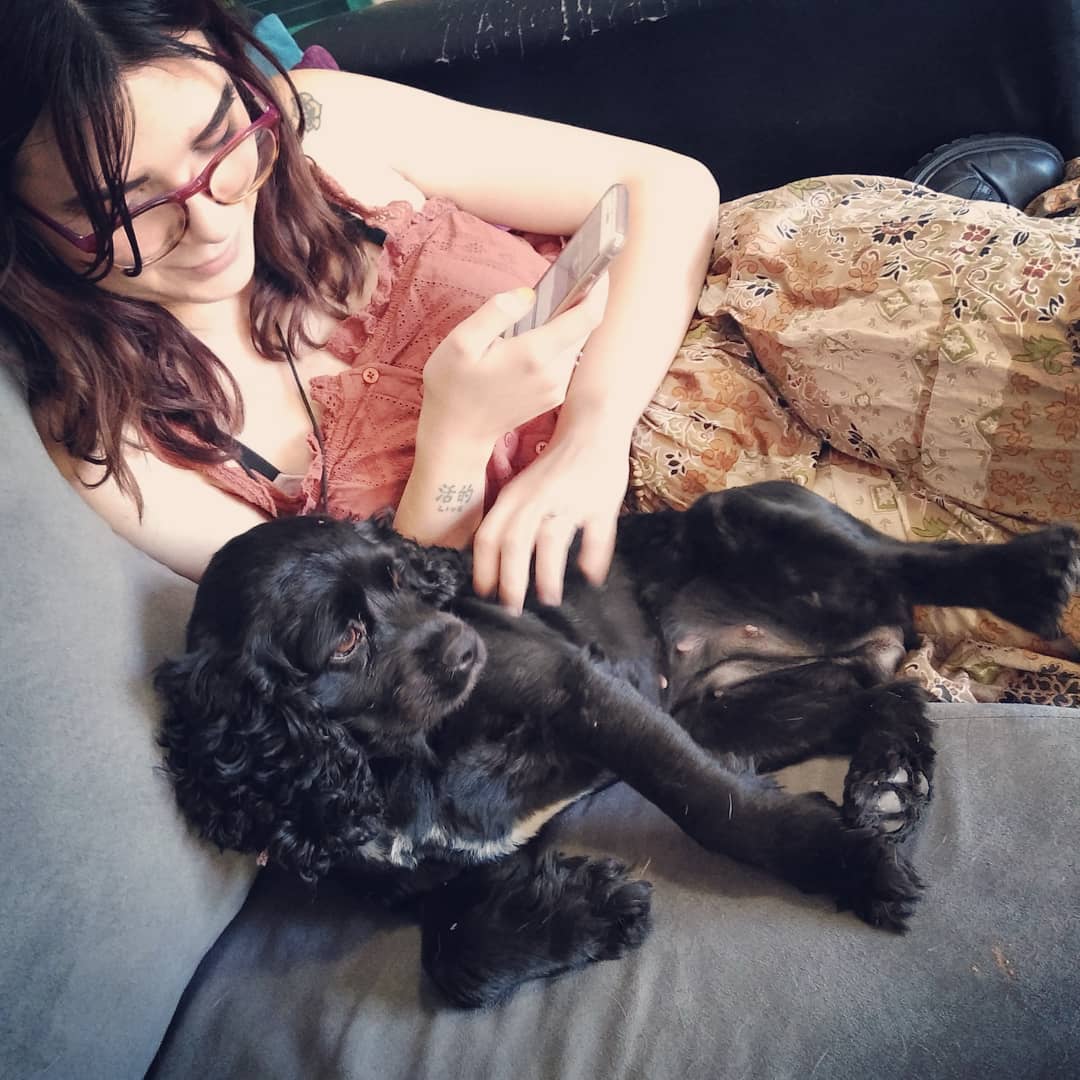 moved out was completely different from the one that moved in. Jill has continued to thrive and has stayed in school, held steady employment, and even left the program early to get her own apartment. I could not be prouder of how much she has changed the direction of her life. Jill has recently gotten a better paying job and continued to make healthy life choices like returning to therapy and getting a personal trainer. Even the relationship with her adoptive family is healing and greatly improved.
moved out was completely different from the one that moved in. Jill has continued to thrive and has stayed in school, held steady employment, and even left the program early to get her own apartment. I could not be prouder of how much she has changed the direction of her life. Jill has recently gotten a better paying job and continued to make healthy life choices like returning to therapy and getting a personal trainer. Even the relationship with her adoptive family is healing and greatly improved.
We don’t have the opportunity to see her as often as we used to but every time we do, she surprises us with more great news.
Young adults who have aged out of foster care are rarely as lucky to have a support system like those who are raised by their birth families. Many teens in our program aged out from a group home. Sometimes group homes are managed by a revolving door of staff, and kids are given basic chores but not often taught about money management for things like grocery shopping, paying bills, or cooking. Their behaviors are managed and not often given direction about how to communicate with others. Youth in group homes are picked up and dropped off everywhere they go by adults and never carry a house key of their own.
When they become adults, they suddenly have to hold themselves accountable for house hold duties, learning to cook, budgeting, communicating clearly with others, and navigating their own transportation. Most 18 year olds will have had much more practice at these skills than a former foster youth with direct experience in seeing a parent modeling these things.
I would strongly encourage anyone who is looking for a way to help kids in foster care to consider becoming a mentor. Young adults also need direction like minors. There is a level of freedom in mentoring an adult that is harder to navigate with youth still in foster care.
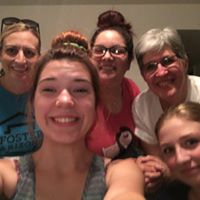
For more information on becoming a mentor for youth in our Foster Arizona Housing Project please contact us at: info@fosteraz.org
or fill out an application at https://
Dina Uraine
Foster Parent/Mentor
Team Lead Foster Arizona
